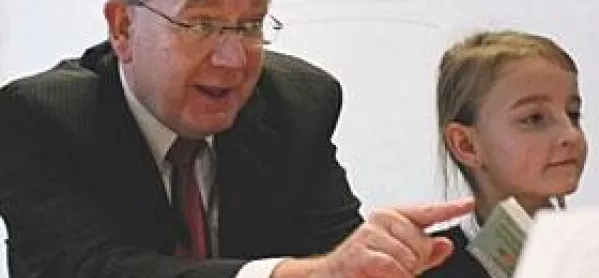‘Hapless Hyslop’ out, ‘silky-tongued self-believer’ in

Original paper headline: `Hapless Hyslop’ makes way for `silky-tongued self-believer’ The appointment of Michael Russell to the Cabinet as Secretary for Education and Lifelong Learning completes a political comeback for the 56- year-old south of Scotland MSP. Mr Russell was once Alex Salmond’s closest confidant when he was chief executive of the SNP from 1994-99. But the relationship turned frosty after they both contested the leadership following the short-lived reign of John Swinney. His parliamentary career began promisingly, earning golden opinions shadowing and harrying Labour’s education ministers after devolution. Then his enemies in the SNP closed in and denied him a place on the party’s list system of MSPs for the 2003 election. He spent the next four years in the political wilderness, honing his writing and intellectual skills (including in this journal - see panel), before being returned as an MSP in 2007. It is a measure of their rehabilitation that Mr Salmond has turned to Mr Russell in his hour of educational need and pronounced that his new Education Secretary “can bring new thinking to this tough task”. In fact, he has been given a series of “tough tasks” since the SNP Government came to power in 2007. As junior minister for the environment, he struggled to deal with a contentious crofting bill. In his previous job as minister for the independence referendum, he was handed an impossible task given the SNP Government’s minority position in Parliament. He was much more relaxed and sure-footed in his other brief as culture minister, a post for which his wide interests in that field were uniquely suited. Mr Russell has inherited a role which has suddenly become the most challenging in government, now that his colleague Kenny Macaskill has despatched the Libyan bomber from Scotland. Although his predecessor Fiona Hyslop, who is the new Culture Secretary, was well-liked and impressed those who came into contact with her (especially on the post-school side of her portfolio), she became overwhelmed by a series of policy calamities on student finance, school buildings, class sizes, teacher numbers and nursery education. Her problems were reinforced by increasingly fierce and confident opposition attacks on “hapless Hyslop”. Talking to The TESS on the day of his appointment, Mr Russell said he would be “stepping back, listening and taking stock”. Married to a primary headteacher with one son, Mr Russell said: “There are far more good things in Scottish education than bad, but we have to acknowledge that there are problems which need to be solved and that can only be done by working with others.” An accomplished writer, Mr Russell is one of the SNP’s star performers in Parliament and on television - one of the few in any party, some suggest. But a senior Labour backbencher says his very qualities make him seem to be “a showman, a front man, a bit of a bruiser - good on presentation rather than delivery.” Brian Monteith, TESS columnist and a former sparring partner when he was the Tories’ education spokesman, said Mr Russell needs his “silky-tongued quick thinking to pull the SNP out of the hole Hyslop kept digging, but nothing is beyond the self-belief of the man who invented the party’s policy on small classes seven years ago”.What he’s said
Keep reading for just £1 per month
You've reached your limit of free articles this month. Subscribe for £1 per month for three months and get:
- Unlimited access to all Tes magazine content
- Exclusive subscriber-only stories
- Award-winning email newsletters

